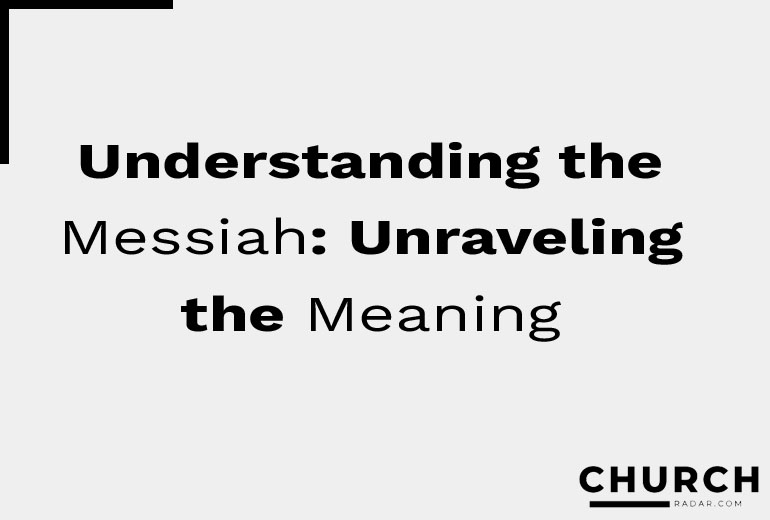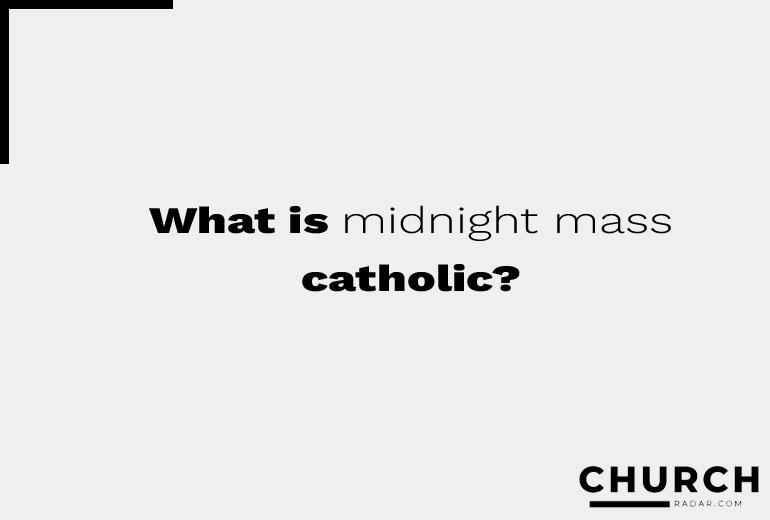Messiah meaning
- 2023-10-30 by
- ChurchRadar

Understanding the Messiah: Unraveling the Meaning
In the tapestry of religious and cultural narratives, the term "Messiah" stands as a prominent and profoundly resonant thread. Its significance is far-reaching, spanning across various faiths and belief systems, each offering a unique interpretation and understanding. But what, precisely, does "Messiah" mean? This article delves into the depths of this term, exploring its origins, its multifaceted interpretations, and its role as a symbol of hope and salvation.
The word "Messiah" finds its roots in the Hebrew language. It is derived from the Hebrew term "masiah", which means "anointed one". In ancient times, the anointing of individuals, particularly kings and priests, held profound significance. This act symbolized a divine commission, marking the chosen one as a leader and a conduit of God's will.
The Messianic Concept in Judaism
In Judaism, the concept of the Messiah is deeply ingrained. The Messiah is envisioned as a future, yet-to-come figure who will fulfill several critical roles. These include the restoration of the Davidic monarchy, the rebuilding of the Temple in Jerusalem, the ingathering of exiled Jews, and the establishment of an era of peace and justice. The Messiah, according to Jewish belief, is not divine but a human figure appointed by God to accomplish these monumental tasks.
The Christian Perspective
In Christianity, the meaning of the term "Messiah" takes on a different dimension. Jesus of Nazareth, known as Jesus Christ, is regarded as the Messiah by Christians. In Christian theology, Jesus is considered both fully divine and fully human, making Him the Savior and the fulfillment of Old Testament prophecies about the Messiah. His mission was to offer salvation and eternal life to humanity through His death and resurrection.
Islam's View of the Messiah
In Islam, the concept of the Messiah is embodied in Isa (Jesus), whom Muslims believe to be a prophet. While Islam acknowledges Jesus as the Messiah, it differs from Christian beliefs. Islam teaches that Jesus was a mortal prophet, not divine, and that he was not crucified but was instead taken up to heaven. Muslims believe in a future coming of Isa as a sign of the Day of Judgment, though this role differs significantly from the Christian concept of the Messiah.
Messianic Themes in Other Religions
Beyond the Abrahamic faiths, the concept of a savior or a messianic figure can be found in various forms across the globe. Hinduism anticipates the appearance of Kalki, the final avatar of Vishnu, who will restore righteousness. Buddhism holds expectations about Maitreya, a future Buddha who will teach the Dharma. These figures embody a common theme of hope, renewal, and the rectification of the world's injustices.
The Symbol of Hope and Salvation
Regardless of religious affiliation, the idea of the Messiah remains a symbol of hope and salvation. It represents the yearning for a better future, a time when suffering and injustice will be replaced by peace and righteousness. The concept of the Messiah reflects humanity's innate desire for a higher purpose and a deeper connection with the divine.
At the end..
The meaning of "Messiah" is profoundly multifaceted, carrying different connotations in various religious traditions. From the anointed one in Judaism to the divine Savior in Christianity, and the awaited prophet in Islam, the Messiah's essence resonates with themes of redemption, salvation, and the restoration of a world plagued by suffering. While interpretations may vary, the common thread that unites them is the unwavering human aspiration for a brighter future, marked by peace, justice, and the divine presence. The concept of the Messiah serves as a testament to the enduring power of hope and faith in the human experience.
Posts You’d Might Like

Act of Contrition
- 2023-11-17

Prayer to the Guardian Angel
- 2023-11-13

What is midnight mass catholic?
- 2023-11-10